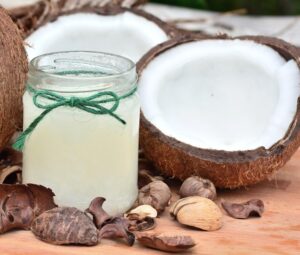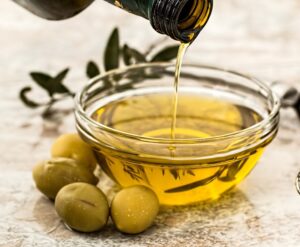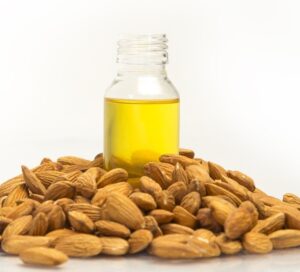Google the term coconut oil or canola oil and health, and you will discover a vast amount of information referencing conflicting research and opinions – much of which may be misinformation, or at least not complete information. They do not make it easy to navigate nutrition information!
Fat, like carbohydrate and protein, is a macronutrient that all our bodies need.
 Dietary fat comes in two forms: saturated fat and unsaturated fat. Some foods contain more saturated fat than unsaturated fat and vice versa. Our bodies need both types of fats and both dietary fats can be part of a healthy and balanced diet. However, just like most things we eat, some fats, when consumed in high amounts, can harm our health, and some fats can benefit our health.
Dietary fat comes in two forms: saturated fat and unsaturated fat. Some foods contain more saturated fat than unsaturated fat and vice versa. Our bodies need both types of fats and both dietary fats can be part of a healthy and balanced diet. However, just like most things we eat, some fats, when consumed in high amounts, can harm our health, and some fats can benefit our health.
Saturated fat 
Saturated fats are solid at room temperature. Foods high in saturated fat include foods baked or fried using saturated fats, meats, lard, cream, butter, cheeses, whole milk dairy products, and tropical fruits and oils like coconut and palm.
- High saturated fat intake increases blood levels of “bad” LDL cholesterol, an established risk factor for cardiovascular diseases. Yet, some argue that the research is not strong enough to say that saturated fat causes cardiovascular diseases.
- Regardless, the recommendation is to limit saturated fat intake, because of the strong association between high LDL levels and cardiovascular disease and adverse events.
- Coconut oil is often touted as a magical health food in the media. While it can (like most foods) be part of a healthy diet, it should be consumed in moderation as it still does raise LDL cholesterol because of its high saturated fat content (regardless of the type of fatty acids present).
 Unsaturated fat
Unsaturated fat
Unsaturated fats are liquid at room temperature. Foods high in unsaturated fat include vegetable oils (canola, olive, soybean, etc.), avocados, nuts, seeds, and fish.
There are two types of unsaturated fats:
- Monounsaturated fat is high in olive oil, canola oil, avocados, almonds, and pumpkin seeds among other foods.
- Polyunsaturated fat is broken into two categories:

- Omega-6 fatty acids. Sources of omega-6 include peanut, soybean, and sunflower oils.
- Omega-3 fatty acids. Sources of Omega-3 include fish, flax seeds, chia seeds, walnuts, and canola oil. In general, we can all use more of these fats in our diet.
- Diets high in unsaturated fats, especially when they are replacing saturated fats may decrease “bad” LDL cholesterol and increase “good” HDL cholesterol.
- Canola oil often receives a bad rap for the way that it is processed or because of its fat composition, but based on research there appears to be little reason for worry pertaining to both concerns. Canola oil provides health benefits and is a suitable alternative to oils with high saturated fat.
Overall, there is room for foods with saturated fats as well as those with unsaturated fats in a healthy balanced diet. Yet, it is best for our health to limit the amount of food we eat that contains high amounts of saturated fat, and instead consume more foods high in unsaturated fats. When possible, consider swapping foods with high saturated fat for those with low saturated fat or high unsaturated fat. For example, you might consider swapping butter for olive oil, beef for fish, or ice cream for sorbet.


Thanks for the update on coconut oil. There is so much confusing information out there.
Great information. Thank you!
I look forward to the Live Smart Colorado blogs because I always learn something that helps me!